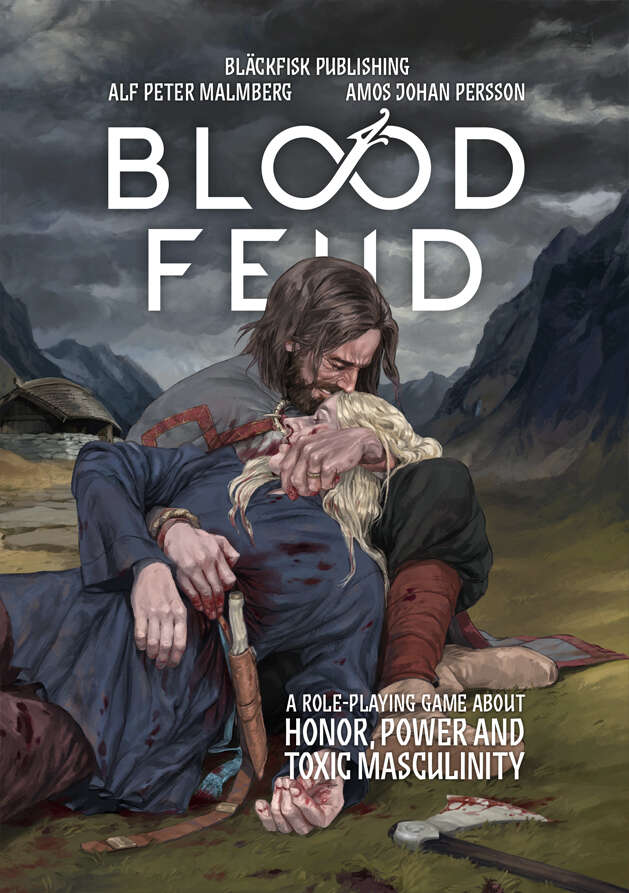I’m on a study project to improve my understanding of roleplaying games. To this end, I already have two reading projects, A Game Per Year and An Adventure Per Year. This is the third, with the goal of reading or playing 52 games made in the last few years. Originally I considered making this “A New RPG Per Week” and that’s where the number 52 comes from, even though a weekly schedule is probably not within my abilities.

Blood Feud is a tightly focused Swedish indie roleplaying game about toxic masculinity in a viking community. More precisely, it’s a toxic masculinity simulator, providing mechanics which make sure that specific patterns of behavior play out in all their destructive, vile glory.
The game feels transgressive in the way it simply and methodically presents a system which leads to men stabbing each other for minute points of honor. You can play it keeping a modicum of emotional distance to the characters so the game can become a comedic exploration of bad dynamics. Or you could go all in, inhabiting the headspace of people who will always have to escalate on any point of honor.
The key to the game’s presentation is the way it’s mechanics rob toxic masculinity of all the mystique often attached to it. Instead of honor and glory, you see a stark mechanic where differences between status between men are crucial and murder can be the only way to avoid losing face. It all comes across as sordid and awful.
There’s no GM and supporting characters are played by the other players. The motivations of women characters are known to the player of that character but not to other players, creating a line of demarcation between your primary male character and how you as a player experience the game. Your male character doesn’t really understand women but you as a player will have insight into the wants and needs of the woman supporting character you play.
The game runs on an economy of Honor points, affected by how the Moves you make play out. The Moves are less dependent on chance than in Apocalypse World, instead relying on how other players and characters react to them. The others can accept your Move or escalate.
For example, if you make a Move to insult another man, his player can escalate by punching you.